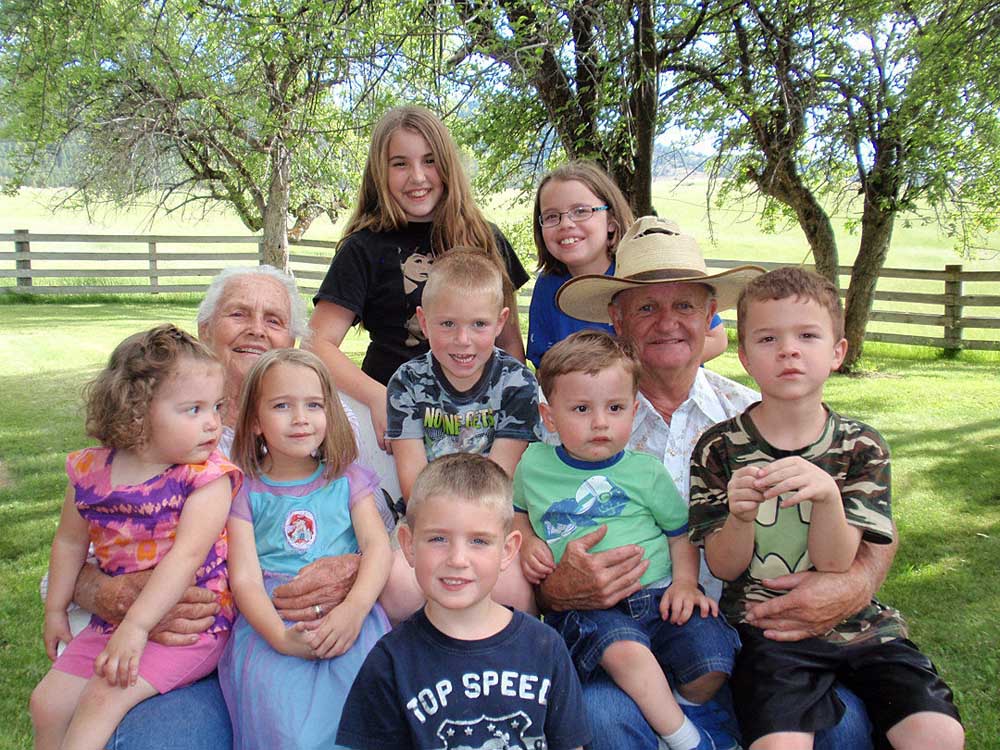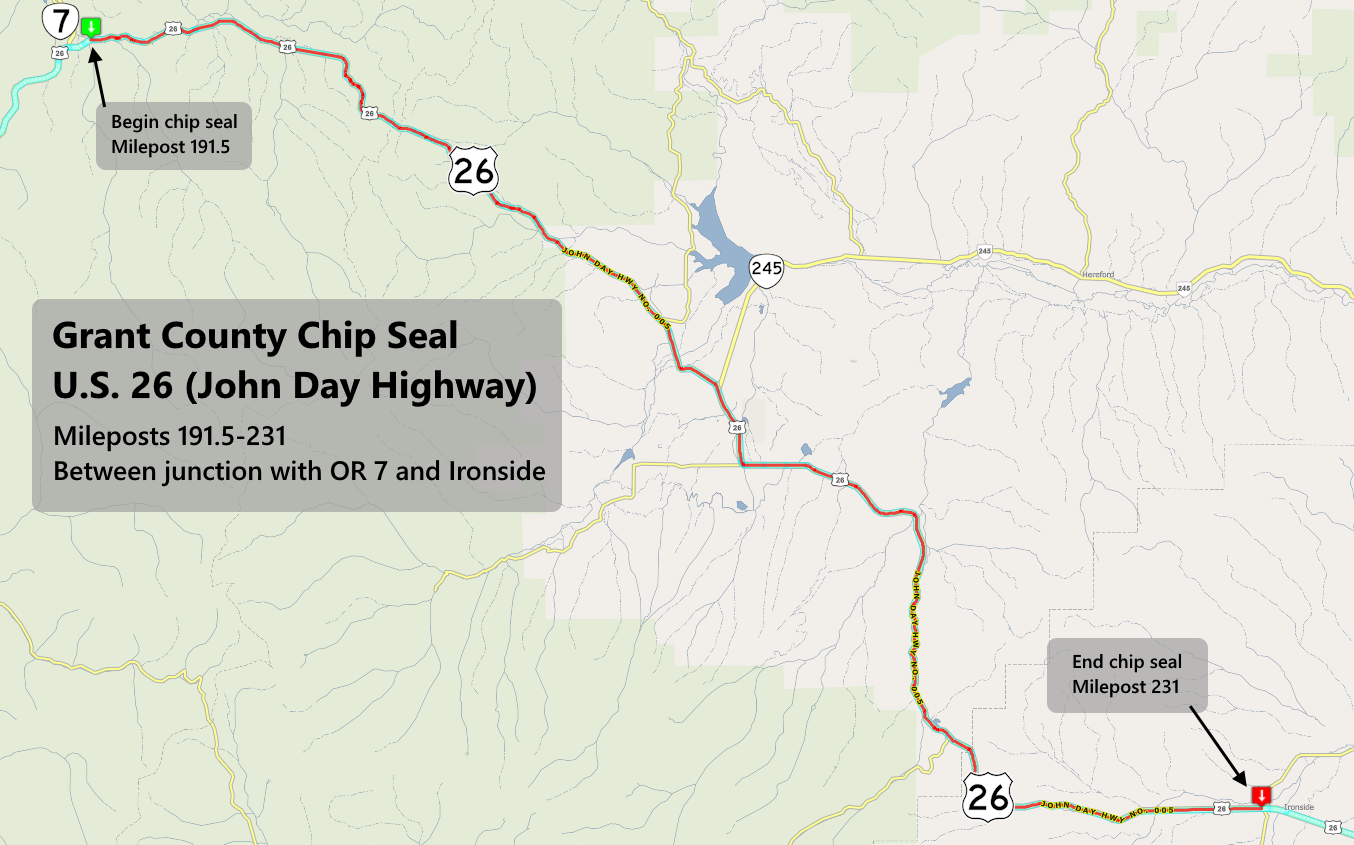Ranching: A field like no other
Published 12:53 pm Tuesday, March 8, 2016

- Carolyn and Steve Mullin beam amid grinning great-grandchildren and a few friends.
PRAIRIE CITY — As jobs go, ranching is in a field all its own.
Duties and animals beckon around the clock or, at best, from before sunup to past sundown, seven days a week, every week of every year. No calling in sick and no vacations, at least not without plenty of pre-planning and help from neighbors and family.
So why would someone want to pursue such a demanding calling?
Longtime Grant County rancher Carolyn Mullin said, “If you didn’t like it, you wouldn’t do it.”
Carolyn and her husband, Steve, like it well enough to have been doing it for 50 years this coming June, raising purebred Black Angus cattle on their Blue Mountain Angus Ranch in the Prairie City area, beneath the majestic Strawberry Mountain Wilderness.
However, the Mullins’ ranching days date back even further. Before settling in Grant County, the couple, who are both from California, worked on Steve’s family’s Siskiyou County ranch in northern California, using a brand that had been his great-grandfather’s.
Their sons, Allan and Dan, are carrying on the family business and are also Grant County area ranchers. As youths, both participated in 4-H and showed cattle at the Grant County Fair for many years, and Carolyn served on the fair board, too.
She said ranching is a lifestyle that a lot of people can’t handle — “It’s so different from anything else.”
It’s a 24/7 job, Carolyn said, especially when animals are involved.
“When you’ve got livestock to take care of, you can’t just decide not to do it,” she said. “They come first and are even cared for before anything else.”
The Mullins, who used to have about 300 head of their purebred cattle, are now down to about 60.
Unlike many other ranchers who are busy calving in the spring, the Mullins do theirs in the fall. But animals at any number and any time of year still have endless needs, and something as simple as a recent weekend trip to a bull sale in Klamath Falls involved arranging for people to help with feeding and other chores in the Mullins’ absence.
While they enjoy their ranching way of life, Carolyn said, “It’s not as fun as it used to be.”
Just getting everything done that needs to be done is harder nowadays, she said. They used to be able to ride horses to and from chores across the ranch, but now often rely on 4-wheelers to save time while covering the acres, to get more done faster.
The new law raising the minimum wage in Oregon hits the ranching industry, too.
“We can’t afford to hire as many people,” Carolyn said, adding, “You can’t hire a kid until they’re 16.”
She said, however, they are luckier than many others because they are able to use mostly family members.
According to Carolyn, other changes over time involve the push for organic and natural meat, and no antibiotics.
“We have so many rules and laws by people who don’t know what they’re doing,” she said. “I don’t know what we’re going to eat.”
However, the biggest obstacle today, Carolyn said, is increasing government intervention — specifically forest management.
That’s where the future of ranching lies, she said, both here in Grant County and other rural areas throughout the West.
The Mullins lost 800 acres of timber and 1,000 of pasture last August from the ravages of the Canyon Creek Complex fire.
“I look at that hillside, and it’s all burnt — it’s like going through a war zone now,” Carolyn said.The Mullins were using the timber they lost as a kind of bank account, but now, Carolyn said, “There’s nothing.”Still, Carolyn said, it is a wonderful place to raise a family.
Being outside is what she enjoys most. In addition to the cattle, they raise chickens, and she tends a summer garden and does all the irrigating at the main ranch.
“I thoroughly enjoy hearing the birds sing and letting the dogs run,” she said, though she admitted the view was better before “they burned our mountain.”
The Mullins have contemplated retirement, but the prospect of empty, ranch duty-free days seems a bit daunting after all these years.
“What am I going to do if I don’t have cows to take care of?” Carolyn asked.






